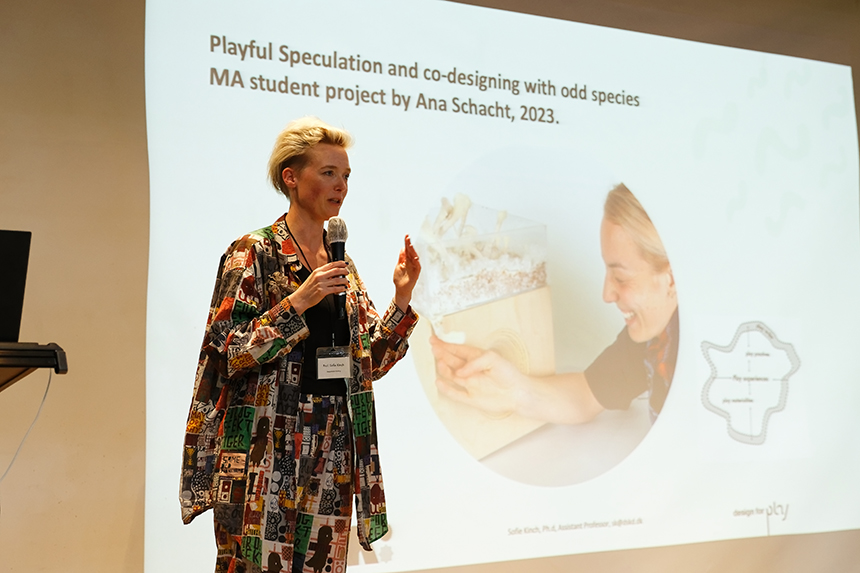- Design for Sustainable Urban Living Lab Holds an International Symposium with Design School Kolding of Denmark May 24, 2023
-
A Playful Speculation: Alternative Approaches for Shaping Futures
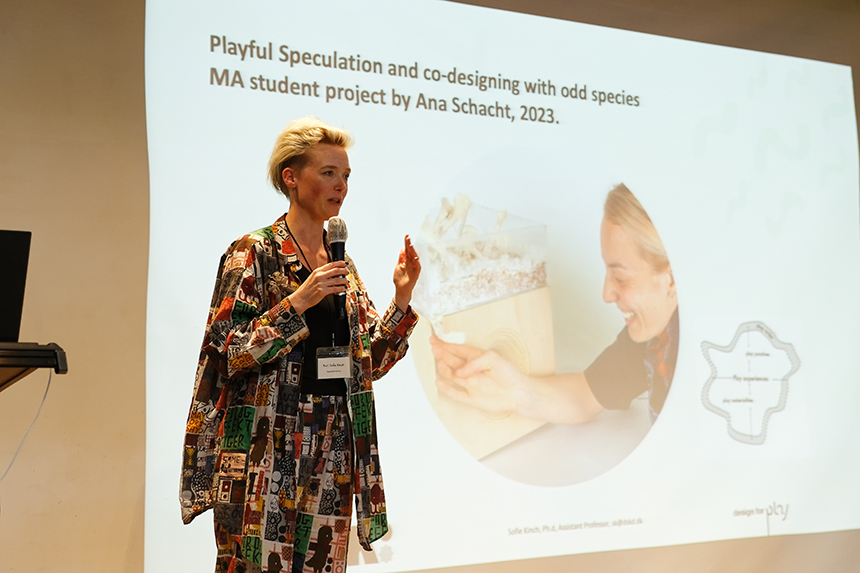
On May 4, the Design for Sustainable Urban Living (DSUL) Lab, under the Department of Human Environment and Design at the College of Human Ecology, Yonsei University in Seoul, South Korea, held the first international design symposium," A Playful Speculation: Alternative Approaches for Shaping Futures" in the Samsung Hall on the Sinchon Campus.
The symposium is part of an international cooperation program between Yonsei University's BK21 research group, "Developing Experts Who Can Drive the Future of Innovation in Society with the Ability to Enable Empathy, Coexistence, and Symbiosis" and the Design School Kolding (DSKD) of Denmark. From DSKD, the master's course students ("Design for Play") and faculty affiliated with the "Lab for Play and Design" participated. The conference served as an opportunity to introduce the "playful approaches for speculative design" to South Korea's cultural and social context. Professor Hyunjae Shin and Ph.D. candidate Eunsun Park of the DSUL Lab lead this project.
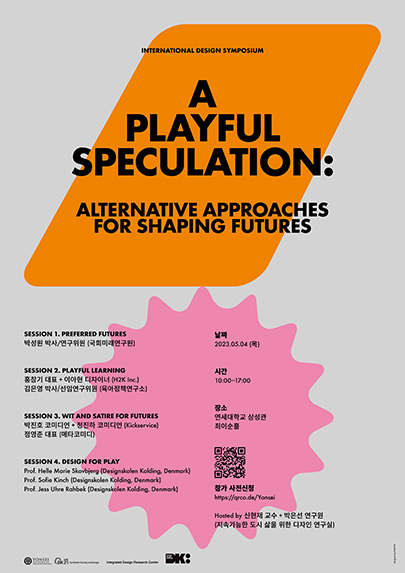
The symposium consisted of a total of four sessions. Experts from various fields gathered to discuss new ways to create a better world through design, challenge current conventional design methods, and discuss new ways to spark conversations about alternative futures to explore the possibilities of "speculative design" and "play."In the first session, "Preferred Futures," Dr. Park Seong-won, a futures studies researcher at the National Assembly Futures Institute, gave a lecture. Dr. Park stressed that discussions for the future that society prefers should be fully conducted along with discussions for a predictable future. He stressed that, through research on the preferred future, society could imagine the future where values that each citizen thinks important are realized, and the future literacy acquired through this process plays an essential role in creating a future that members of society aim for together.
In the second session, "Playful Learning," CEO Changki Hong and Play Designer Ahyeon Lee of H2K (Happiness to Kids) presented examples of education through play. They introduced a mobile application to teach children with learning disabilities basic Korean in a fun way. Dr. Kim Eunyoung, a senior researcher at the Korea Institute of Child Care and Education, presented the background and characteristics of the play-based curricula designed to integrate play into children's learning processes, changes caused by play-based approaches, and future tasks.The third session was "Wit and Satire for Futures," emphasizing the importance of comedy and design that attracts the public to crucial social discourse by appealing to both intelligence and imagination. Park Jin Ho and Jung Jin-Ha, comedians and YouTube creators with 500,000 subscribers, participated as speakers to discuss the planning, production, intention, and influence of their YouTube content, "Kick Service" 2033 future scenario series. Young Joon Chung, CEO of Meta Comedy, South Korea's first-ever comedy label company, lectured on the value of the "aesthetics of teasing" that satirize social structures in a humorous way that promotes positive change. He emphasized that comedy and design have positive power in dealing with the zeitgeist and storytelling.
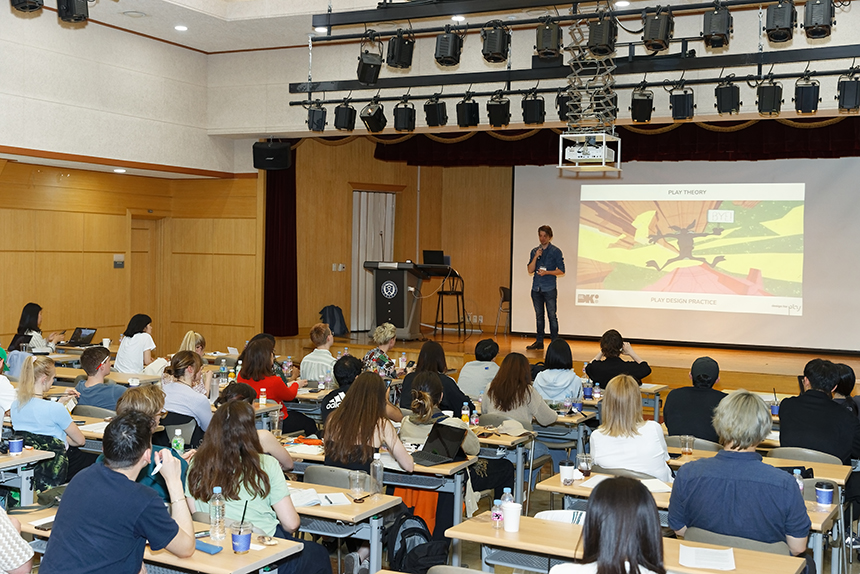
In the last session, "Design for Play," prominent speakers of the DSKD shared their knowledge and expertise on the subject. Through her lecture, "Play Moods," Professor Helle Marie Skovbjerg emphasized the importance of conceptualizing play to make knowledge-based design decisions. Also, she introduced examples of how to integrate it into the design process. Professor Sofie Kinch introduced "Playful Co-speculation," a concept based on participatory design research using play, and Professor Jess Uhre Rahbek introduced the "Playful Tension" model as a way to translate the tension between order and disorderly play into design theory and discussed its meaning.A total of 150 people attended this international symposium, and it not only imagined the future through playful speculation but also provided an opportunity to break down dichotomous boundaries deeply rooted in Korean society, consider critical questions together, and open new horizons for alternative futures.
Furthermore, Professor Hyunjae Shin, who has opened his undergraduate course in the Department of Human Environment and Design, "Speculative Design," for the first time in South Korea this semester, signed an MOU with the DSKD delegate to prepare opportunities for continuous research and academic exchange.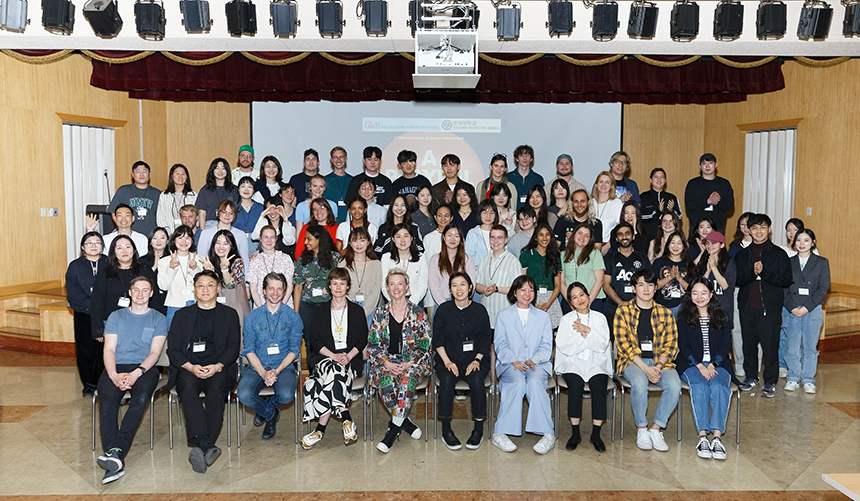
show mobile menu
mobile menu

